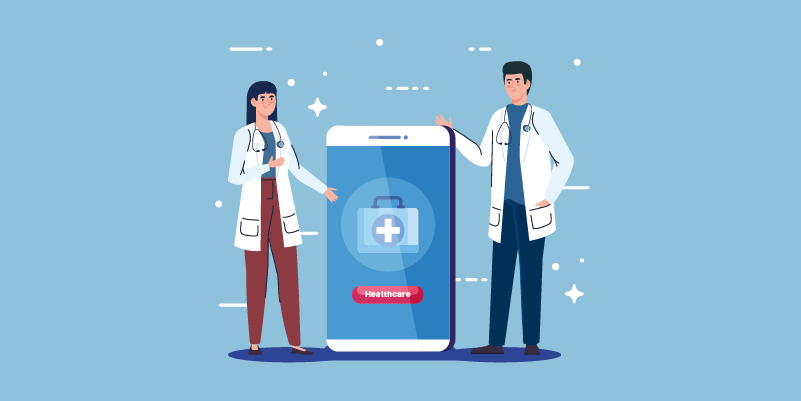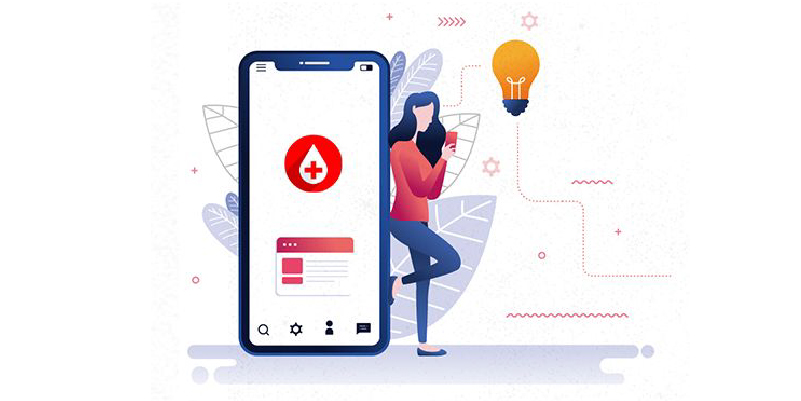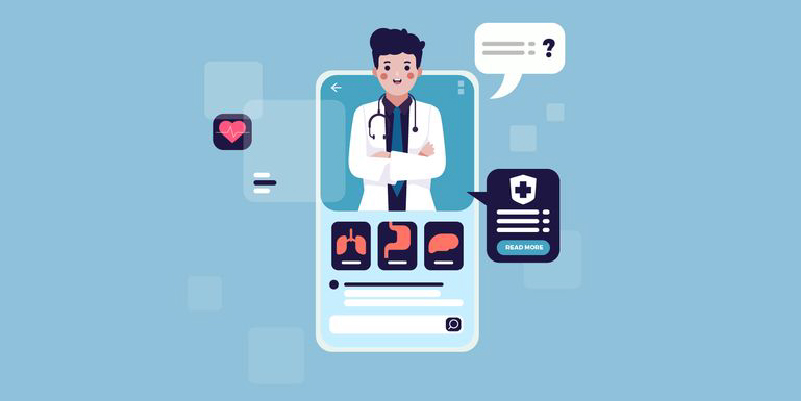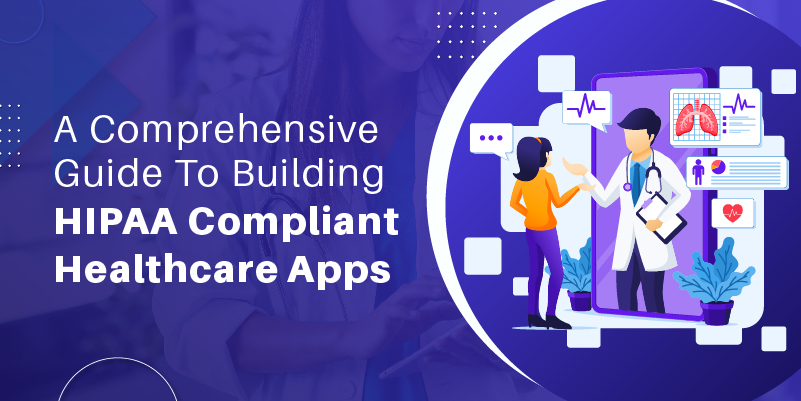According to Protenus dot Com, in 2019, approximately 41 million patient records in the US were hacked. In the previous year of 2019, 15.5 million records were breached – a rough comparison shows that it had almost tripled. On the whole, healthcare data breaches cost an average of $6.5M, according to Fierce Healthcare dot Com.
The American Health Insurance Portability and Accountability Act (HIPAA) of 1996 is a federal law requiring providers to follow and ensure that all patients’ records are handled with the utmost security and privacy. Therefore, all the healthcare data stored, received, or sent by any healthcare app must be HIPAA compliant. Providers who fail to abide by the law will receive penalties for violating the health information privacy act.
This post reviews HIPAA compliance in mobile healthcare app development and everything required to craft an adequate HIPAA compliant app for your healthcare entity.
Who Needs to be HIPAA Compliant?
The list includes entities who process, store, and share PHI data – Protected Health Information about the patient:
- Covered Healthcare Entities
- Healthcare Clearinghouses
- Health Plans – Insurers, HMOs, Medicaid, Medicare prescription drug card sponsors, etc.,
- Business Associates – third-party administrators and private sector vendors
A more in-depth peek into the PHI data would highlight emails, medical bills, claims, medical tests, and other records about the patient.
How To Build HIPAA Compliant Apps?
Developing HIPAA compliant healthcare apps requires several modifications on both features and the design front. If you are clueless about what you are creating, then it can pose a critical challenge.

At HealthTechWiz, we had built 100s of mHealth solutions that are HIPAA compliant, and our approach follows these below-listed vital points:
- Privacy
- Security
- Enforcement
- Breach
Besides that, look for physical and technical safeguards.
Physical Safeguards
In simple terms, make sure that the backend is safe enough, see to it that devices are secured and can never be approached or stolen. Preserve the essentials in a highly secure area to make it work, and never allow strangers or unauthorized personnel to visit the place. Set up an authentication system to track what is going on even when no higher personnel are around.
Technical Safeguards
Ensure all the transferred data is adequately encrypted and stored on servers and devices that are highly secure. Vulnerable devices, lower versions of software, an outdated mechanism can pose a severe threat. Some of the technical safeguard practices include:
- Emergency access process
- Unique user identification
- Automatic logoff
Best Practices That Ensure Healthcare Data Security
Maintain the minimum necessity requirements: Avoid accumulating more data than you would need or store data for longer than required for work. Plus, bypass transmission of PHI data in push notifications or leak the information in logs and backups.
Features of HIPAA Compliant Apps For Patients

Schedule Appointments
Patients should experience book appointments from the comfort of their home hassle-free. A perfect HIPAA compliant app enables them to book a time slot as per their needs. In simple terms, the app shows the doctor’s calendar that has vacant time slots.
Chat and Messaging
Get in touch with the doctors and nurses effortlessly. Patients’ queries will be easily attended to with the app’s chat and messaging feature. HIPAA compliant messaging app is the basis of smooth communication between the parties.
Reminder Update
Most of us fail to remember the appointments and dates. The ‘reminder update’ feature comes in-built; it sends out timely reminders on upcoming doctor appointments.
Features of HIPAA Compliant Apps (Doctors and Healthcare Institutions)

Sending and Receiving Notifications
The HIPAA compliant app supports sending and receiving timely notifications on all devices. This includes easy reminders and upcoming appointments.
Store Patient Information
A HIPAA Compliant app supports easy data transfers, storing patient information, and reproducing different forms of charts, graphics, PDF files, reports, images, and videos on a single screen. A good app supports all this without hiccups and instantaneously.
Secure Data Sharing
A good app outlines access control, data, security policy languages, a safe messaging platform,easy-to-access upcoming appointments, and cryptographic approaches that enable fine-grained security and data. HIPAA compliant apps do that all.
Developing A HIPAA Compliant Medical App – How To Find The Right Partner?
Well, the approach is simple and straightforward. Follow these steps listed below to find the right HIPAA Compliant Healthcare Apps partner.
- First, understand your need to choose a custom HIPAA app from scratch or a Ready-made Solution?
- Then, get the list of development partners
- Estimate and Categorize Patient Data as PHI
- Encrypt all stored and transferred health data
- Estimate Data Security Aspects with Updated Technologies and Tools
- Frequency of updating, maintenance for security
Conclusion
2021 is almost around the corner; with more cases getting recorded for data breaches in the healthcare industry, a HIPAA compliant app can help steer clear of all the online dangers. Choosing the right one matters as the app’s efficiency ensures success in healthcare institutions and patients. HealthTechWiz has been delivering growth-oriented mHealth solutions for a wide array of healthcare clients across the globe. For more information on how we will help you with your requirements, get in touch with our experts!
